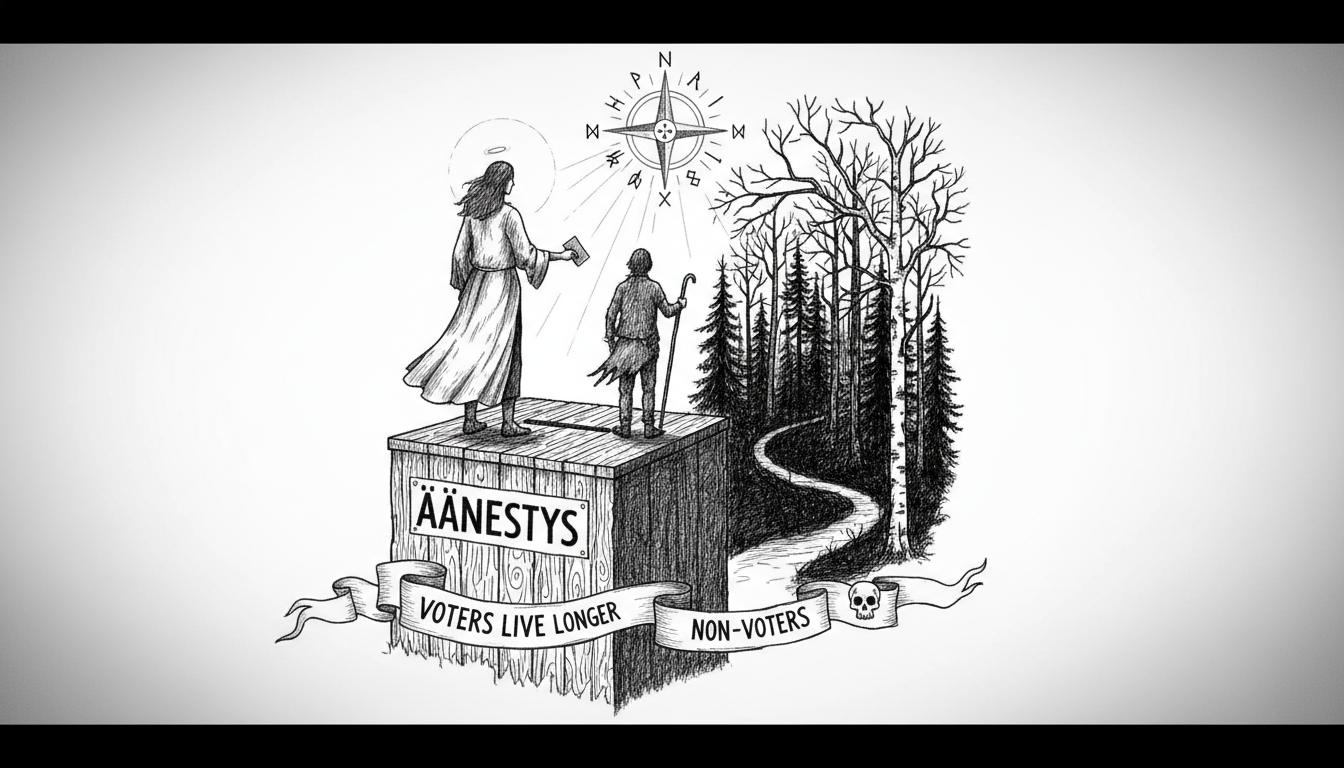A comprehensive Finnish study demonstrates that voting behavior directly correlates with life expectancy. Researchers at the University of Helsinki found non-voters face dramatically higher mortality rates compared to regular participants in democratic elections. The groundbreaking research analyzed data from over 3.2 million individuals tracked from the 1999 parliamentary elections through the end of 2020.
Non-voters experienced a two-thirds higher death risk when compared to consistent voters. This mortality connection proved even stronger than the well-established link between education levels and health outcomes. The study's lead researcher Hannu Lahtinen expressed concern about these findings for equitable political representation in Finnish society.
The research team examined voting patterns from Finland's 1999 parliamentary elections, focusing specifically on residents aged 30 and older. They tracked participants for more than two decades, creating one of the most extensive datasets on voting behavior and mortality ever compiled. The correlation between voting and reduced death risk appeared consistently across both genders.
Male non-voters showed a 73 percent higher mortality rate while female non-voters faced a 63 percent increased risk. Even after accounting for educational attainment differences, the mortality gap remained substantial at 64 percent for men and 59 percent for women. These figures suggest voting participation serves as a powerful health indicator beyond traditional socioeconomic factors.
Lahtinen describes voting participation as a form of social capital directly connected to health benefits. The research indicates that voting habits may provide early warning signs about population health trends. Abandoning established voting patterns could signal significant health deterioration before other symptoms become apparent.
Health challenges and related functional limitations often negatively impact essential participation prerequisites like resources and motivation. This creates a concerning cycle where health issues reduce political engagement, potentially further exacerbating health disparities. The strong voting-mortality connection raises important questions about political equality in Finland's democratic system.
The Finnish parliamentary system relies on broad participation to maintain legitimacy. These findings suggest health disparities may be undermining political representation in subtle but important ways. As Finland prepares for future elections, public health officials and political organizers might need to consider these connections when developing voter outreach strategies.
This research adds to growing evidence about the social determinants of health in Nordic welfare states. While Finland's comprehensive healthcare system provides universal coverage, these findings indicate that social participation factors like voting may independently influence health outcomes. The study's methodology accounted for education levels, yet voting behavior still emerged as a stronger predictor of mortality risk.
Political scientists will likely examine how these patterns affect policy decisions and representation in the Eduskunta. If healthier citizens participate more actively in elections, their concerns may receive disproportionate attention in legislative processes. This could potentially create feedback loops where health disparities lead to political representation gaps that further widen health inequalities.
The University of Helsinki team published their findings in the Journal of Epidemiology & Community Health this quarter. Their work provides valuable insights for public health monitoring and democratic participation initiatives across the Nordic region. Future research may explore whether similar patterns exist in other European countries with different political systems and healthcare models.

